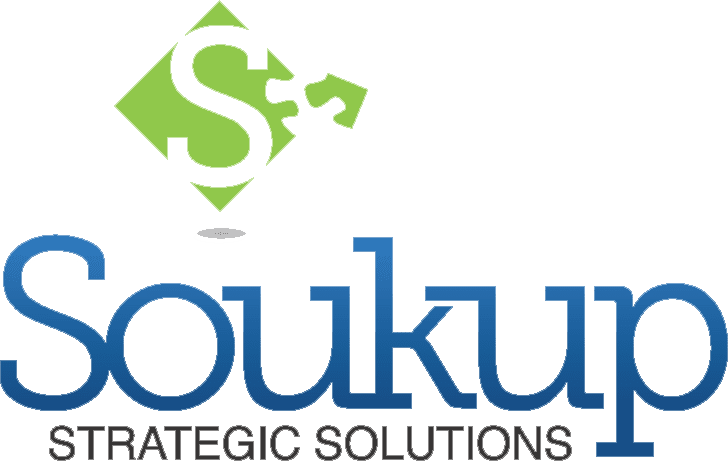Choosing nonprofit Board members is a pivotal decision that shapes the trajectory of an organization, influencing its ability to achieve its mission and create meaningful impact. The right individuals bring skills, expertise, and passion that drive success, making it essential to approach this process with clarity and purpose.
The impact of choosing nonprofit Board members is far-reaching, influencing every aspect of the organization’s functionality and its capacity to create meaningful change. Before embarking on the search for new Board members, it is crucial to clearly define the needs and expectations of your organization. Start by assessing the skills, expertise, and diversity that would complement your current Board composition. Consider your nonprofit’s strategic goals and the challenges it faces. A comprehensive understanding of these factors will serve as a solid foundation for identifying candidates who can contribute meaningfully.
With your organization’s needs clearly defined, it’s time to evaluate the key qualities that make a Board member truly impactful.
Aligning Board Members with Your Nonprofit’s Mission and Values
Selecting individuals who align with a nonprofit’s mission and values is not just a checkbox; it’s the foundation of effective Board membership. A potential Board member should not only comprehend the organization’s cause but should also embody a deep-seated passion for the mission.
This passion serves as a driving force, motivating them to invest time, energy, and creativity into advancing the organization’s goals. The shared sense of purpose created by alignment with the mission and values transforms Board members from mere attendees into enthusiastic contributors. It ensures they view their roles not as obligations, but as opportunities to make a meaningful impact. When Board members are genuinely committed to the mission, their enthusiasm becomes contagious, inspiring others within the organization and the broader community.
Ensuring Commitment and Availability in Board Members
Board membership is not merely a symbolic position; it demands a substantial investment of time, energy, and dedication. Ensuring potential Board members understand and embrace this commitment is imperative for the sustained success of the organization.
Prospective Board members need to be aware of the time demands associated with their role. This involves not only attending regular Board meetings but actively participating in committee work, where crucial decisions are often made. When Board members are dedicated and invested, they become catalysts for positive change, driving the organization toward its goals.
Leveraging Board Members’ Networks for Nonprofit Growth
Beyond the tangible contributions of time and financial commitment, a truly valuable Board member possesses a wealth of connections and community relationships that can be harnessed for the greater good of the organization.
It’s not just about what they bring to the table individually, but the expansive network they carry with them—a network that can serve as a powerful catalyst for growth and impact. Identifying individuals with the ability and willingness to leverage their networks is a strategic move for any nonprofit.
These well-connected Board members act as bridges between the organization and the broader community. Their relationships extend beyond the Boardroom, reaching into diverse sectors and demographics. They can open doors to new opportunities and resources that may have otherwise remained inaccessible.
Their networks become conduits for innovation, collaboration, and growth, elevating the nonprofit’s reach and influence within the community. When seeking Board members, prioritize those with the ability to leverage their connections, recognizing the transformative potential they bring to the organization’s mission and long-term success.
Finding Board Members with the Right Skills and Expertise
Evaluate the skills and expertise a potential Board member brings to the team. Depending on your organization’s needs, seek individuals with a diverse range of skills, such as financial acumen, legal expertise, fundraising experience, strategic planning, marketing, or industry-specific knowledge.
Actively foster a varied pool of candidates, considering different backgrounds, skills, and perspectives. Engage with various communities, industries, and networks to ensure a comprehensive array of experiences. A diverse Board not only enriches decision-making processes and sparks creativity, but also more authentically mirrors the communities the nonprofit serves.
A well-rounded Board, featuring a blend of complementary skills, significantly enhances the organization’s agility in navigating challenges and capitalizing on opportunities.
Prioritizing Integrity and Leadership in Board Selection
Once you have identified potential candidates, conduct thorough due diligence to assess their qualifications, reputation, and commitment to your organization’s mission. Utilize personal and professional networks to gather insights about candidates’ past experiences, leadership styles, and ethical standards.
Integrity is a non-negotiable quality for Board members. Assess the candidate’s track record for ethical decision-making, transparency, and accountability. Effective Board members also exhibit strong leadership qualities, including the ability to collaborate, communicate effectively, and make decisions prioritizing the best interests of the organization.
Providing Orientation and Training for Nonprofit Board Members
Once selected, the integration of new Board members is a critical phase requiring thoughtful planning. A comprehensive orientation is essential to acclimate them to the intricacies of the organization’s mission, operations, and strategic goals.
This initial onboarding process serves as a foundational step, ensuring Board members not only grasp the overarching purpose of the nonprofit but also gain insights into the day-to-day functioning. The orientation should extend beyond an introduction and encompass a deep dive into the organization’s history, values, and key stakeholders.
Investment in a comprehensive orientation and ongoing training is key to the long-term success and effectiveness of the Board. New members are then equipped with the knowledge and tools needed for immediate contributions, and it fosters a culture of learning and adaptability, enhancing the Board’s collective capabilities over time.
Choosing Nonprofit Board Members to Drive Success
The process of selecting nonprofit Board members is a strategic undertaking requiring a comprehensive understanding of the organization’s needs and a commitment to fostering diversity, commitment, and expertise. Aligning Board members with the mission, ensuring their commitment and availability, leveraging their networks, and prioritizing integrity and leadership, organizations can build a high-functioning Board that contributes significantly to the success of the nonprofit’s mission.
A highly functioning and engaged Board reflects the collective commitment of its members. It’s a dynamic team of dedicated individuals who collaboratively navigate challenges, seize opportunities, and drive the organization toward its vision. The right Board members do more than participate—they are architects of your nonprofit’s success, driving your mission forward with purpose and dedication.
Ready to build a high-performing Board that drives real impact? Our team specializes in identifying and aligning mission-driven leaders with nonprofit organizations like yours. From identifying top candidates to providing ongoing Board training, we’re here to help your organization thrive. Contact us today for a free consultation and take the next step toward transforming your nonprofit’s leadership.






